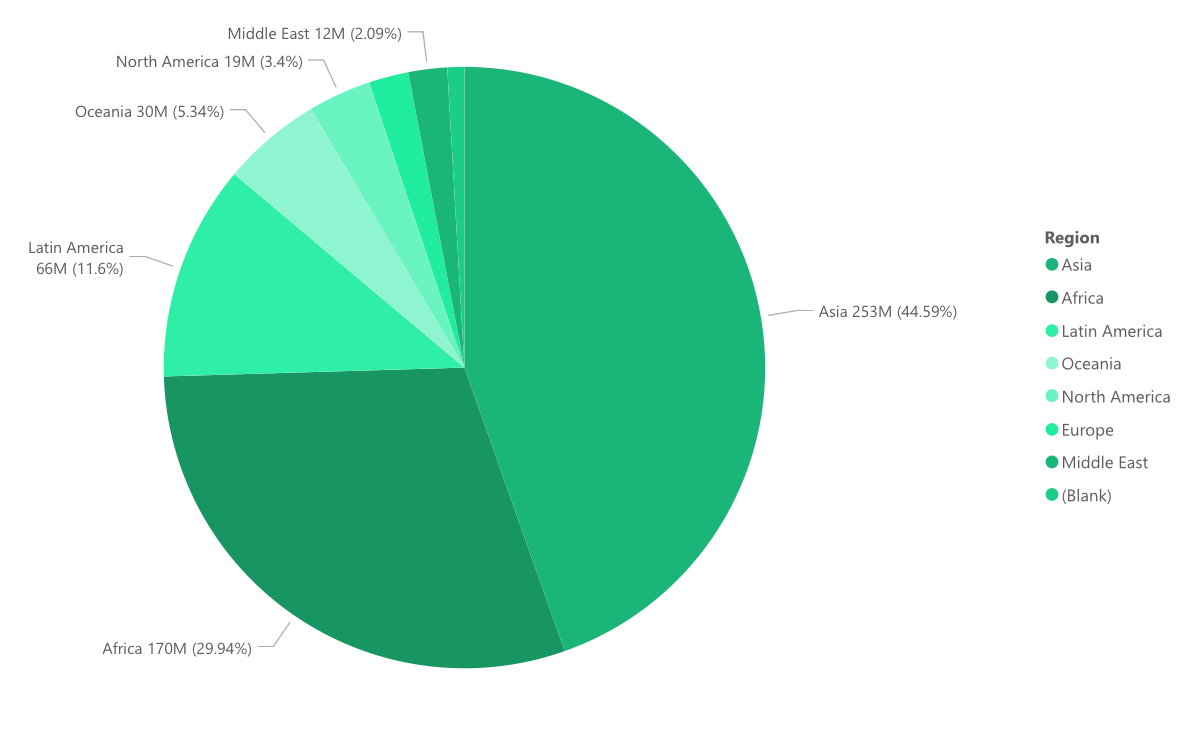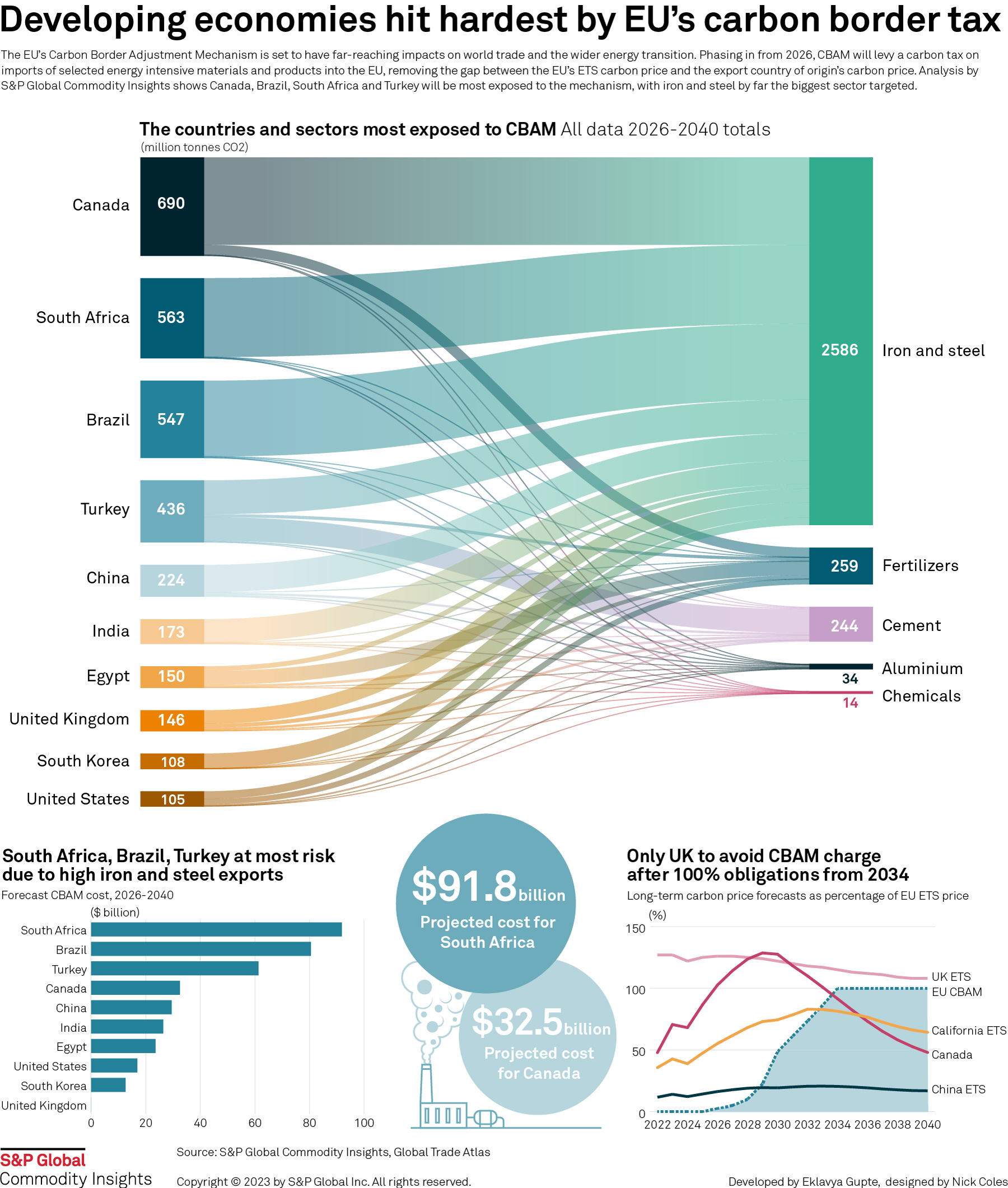
Hey there, Climate Enthusiasts! Welcome to the third edition of Carbon Quantified! This week, We are thrilled to present our latest research on India's Voluntary carbon market, and the potential for India to emerge as a dominant player in this market on a global scale. Overview of the Third Edition: The Indian Voluntary Carbon Market has made significant progress in Q1 2023, with the release of a draft carbon credit trading scheme and a budget allocation of ₹35,000 crores towards achieving energy transition and net-zero objectives. The draft scheme establishes a structure for both voluntary and compliance trading, governed by a board comprising secretaries and joint secretaries from various ministries. Hence, our third edition of the newsletter will delve into two important topics, The first topic we will cover is India's potential role in shaping the future of the Voluntary Carbon Market. The recent developments in its policies and budget have placed India at the forefront of efforts to address climate change and promote sustainable development. The second topic we will focus on is the potential impact of the Carbon Border Adjustment Mechanism (CBAM) on the Indian economy. CBAM is a policy proposal that aims to address the problem of carbon leakage, which occurs when companies move production to countries with lax climate policies to avoid paying for their emissions. The mechanism would impose a border carbon tax on imported goods, which would incentivize companies to decarbonize their production processes. However, there are concerns about the potential impact of CBAM on the economies of developing countries like India, which rely heavily on exports to Europe.
Therefore, in this edition, we will provide a comprehensive analysis of the potential impact of CBAM on India's trade relations with Europe, and explore possible solutions to mitigate the adverse effects. We believe that these topics are of critical importance in the current global climate and economic landscape, and we hope to provide valuable insights to our readers.
In the following sections, we will deep dive into India's Role in the Future of the Voluntary Carbon Market and Understanding the potential impact of CBAM on Indian exporters and the economy



VCM Dashboard: Could India Become the Supply Hub of the Voluntary Carbon Market?
The voluntary carbon market has grown significantly in recent years, as more individuals and businesses seek to reduce their carbon footprint and contribute to the fight against climate change. India has a rich history of renewable energy and abundant resources for various renewable energy technologies. However, certain criteria have limited the eligibility of RE credits for accreditation by registries. Despite this, India accounts for 23% of the total supply of carbon offsets, making it one of the largest contributors, with China following at 9% from Verra. India's vast potential to reduce emissions through various mitigation measures positions it to become a supply bank of carbon offsets. As one of the largest emitters of greenhouse gases in the world, India has an important role to play in reducing global emissions.



From Emerging Economy to Emerging Leader: India's Role in the Future of the Voluntary Carbon Market
As the world becomes increasingly aware of the dire consequences of climate change, countries are looking for ways to reduce their carbon footprint and meet their commitments to global climate agreements. One market that has seen a surge in activity is the voluntary carbon market, which allows companies and countries to purchase carbon credits to offset their emissions. In India, this market has experienced a remarkable revival, with a four-fold increase in activity in 2021 compared to the previous year, and a value of over $1 billion. This growth is part of a wider trend in the global carbon market, which has gained momentum since the Paris Agreement, and is set to accelerate ahead of COP26 in Glasgow. In this article, we will explore India's emergence as a leader in the voluntary carbon market and what this means for the country's future as a sustainable economy.

Understanding the potential impact of CBAM on Indian exporters and the economy
In July, the European Union introduced a new method to address the problem of carbon leakage, which involves moving the production of high-polluting products to countries outside the EU to avoid paying for their emissions. This policy, known as the Carbon Border Adjustment Mechanism (CBAM), aims to reduce the carbon footprint of imported goods and create a level playing field for European industries. However, as a major emerging economy, India is likely to face significant impacts from the implementation of CBAM. While India has raised concerns about the implementation of CBAM with the EU, it is essential for Indian exporters of products covered by CBAM to familiarize themselves with its operation and take appropriate measures to mitigate the risks of losses arising from its implementation. In this regard, we strongly advise Indian exporters to closely monitor the developments surrounding CBAM and take proactive steps to reduce their carbon footprint and improve their competitiveness in the European market. Read More


Xpansiv to Launch International Renewable Energy Certificates (I-REC) Spot Contracts
Xpansiv, the leading market infrastructure provider for the global energy transition, will launch trading in renewable energy certificates from the International REC Standard (I-REC) and the Evident registry on its CBL spot exchange.
Verra Publishes Draft of New Consolidated REDD Methodology, Initiates Jurisdictional Data Development
Verra, the world’s leading standards setter for climate action and sustainable development, today reached a major milestone in its years-long process to update its REDD (Reducing Emissions from Deforestation and Forest Degradation) methodologies to ensure the integrity and quality of its forest carbon credits: it made public for the first time the updated draft methodology for REDD projects and launched a call to crowdsource data for its new standardized baselines.
'Fit for 55': Council adopts key pieces of legislation delivering on 2030 climate targets
The Council adopted five laws that will enable the EU to cut greenhouse gas emissions within the main sectors of the economy while making sure that the most vulnerable citizens and micro-enterprises, as well as the sectors exposed to carbon leakage, are effectively supported in the climate transition.
How British Airways Is Turning To SAF & Hydrogen For A Net Zero Future
It may seem highly ambitious for carriers to imagine a net zero ecosystem by 2050, but British Airways is confident in reaching this goal. Its parent company IAG was the first airline group to commit to this target.
![[object Object]](/lib_ubcXiSgTRmkLVyyT/k8w528b9mk1p20to.png?w=400)
